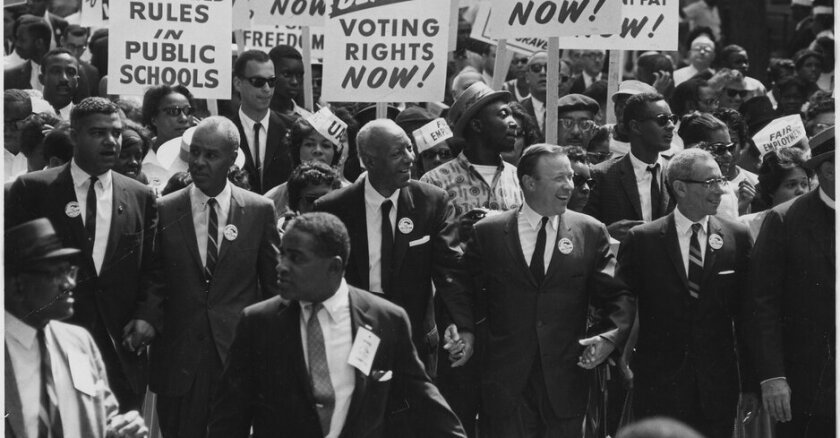As state policymakers debate the various bills, it will be important for them to keep in mind that many of their constituents of all races fought, and some of them died, for the precious right of all citizens to vote. It hasn't been that long since the voting franchise was affirmed through the Civil Rights Act of 1964 and the Voting Rights Acts of 1965. For African Americans, the wounds of nearly a century of voter suppression have yet to fully heal.
The stakes for democracy couldn't be higher as the nation struggles to understand the changes that occurred over the past four years in a country that many believe was on the verge of becoming an authoritarian state. It seems obvious that the current attacks upon the voting rights of minorities and Democrats are a direct reaction to the former president's party losing control of the White House and both chambers of Congress, as he insisted — and continues to insist — that mass voter fraud occurred in battleground states with large populations of people of color.
Public officials born before the passage of the Civil Rights Act should remember the blood that flowed through the streets, on bridges, in state capitols and city halls, and across this country as Black citizens attempted to register to vote. One only hopes that the newer generation of public officials are not too young or too detached from the violence, pain and dehumanization of the Jim Crow era to care about how voter disenfranchisement hurt so many citizens and injured our democracy.
Surely, no one who remembers or experienced those days of American apartheid would want to take us back to them. Still, many of the bills introduced in statehouses this year harken back to the time of poll taxes, literacy tests and voter intimidation. One bill in Georgia would even make it illegal to offer water and other refreshments to citizens standing in long lines on hot days waiting to cast their ballots. This proposal is not only undemocratic, it is also immoral.
As an African American who grew up in the Jim Crow state of Missouri in the 1950s and 1960s, I remember the harsh realities of segregation and voter suppression. Our neighborhoods and schools were racially segregated for most of the formative years of my life. I recall as a young boy accompanying my mother to fast-food restaurants where we had to go to the back doors to be served. Down the street from where I lived, a diner would not serve Blacks inside the facility; we had to order from an outside window, pay in advance and wait in the rain or snow. The entire system of Jim Crow was built and maintained on the foundation of voter suppression. And it was in this atmosphere of official apartheid that the memories were painfully fresh of Blacks being lynched and other forms of violence being visited upon "uppity Negroes" for what whites perceived as acts of disrespect.
These experiences and memories are still on my mind. They still hurt; they trigger traumatic responses; and they were propped up for years by politicians who failed to serve our interests but who we could not vote out of office because of voter suppression.
Because many of us have lived with the trauma of racialized violence for most of our lives — particularly in those days when we were attempting to vote and obtain other forms of social and legal equality — we believe that voting is a sacred right not to be trivialized and reduced to a tactic for aiding one's political party to remain in power.
My own experiences as an elected official and candidate for office have informed my perspective on these issues. Several decades ago, I served as a member of the Atlanta City Council for two terms, only to give up a relatively safe seat to challenge the president of the council. I lost that race, and it hurt. But as sad as I was to lose, I took solace in knowing that the citizens had spoken through a truly democratic process. I didn't create excuses for losing or attempt to change the rules to try to make it easier for me to win the next time around. My pride prevented me from doing anything that might be perceived as cheating or giving myself an unfair advantage.
Where is the pride of some of our elected officials today? Where is their sense of civic responsibility, their commitment to building out our democracy? When did the value of winning at all cost become so prevalent?
As we approach this year's election season, public officials and voters alike should keep in mind the often-quoted words of theologian Reinhold Niebuhr, words that Sen. Warnock reminded us of last week: "Humanity's capacity for justice makes democracy possible, but humanity's inclination to injustice makes democracy necessary."
Governing's opinion columns reflect the views of their authors and not necessarily those of Governing's editors or management.









